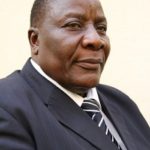Let me now switch Mr. President to the external sector. If you look at exports of goods and services, these are projected to close of year at about $5 billion, largely driven by mineral and tobacco exports whilst overall imports of goods and services are projected to be at about $7.3 billion for the same period. You can already see that we do have a current account, a deficit in our balance of payments where our exports are lower than our imports and there lies a problem. We have as a country what we call a twin deficit problem. We have a current account deficit and we have a fiscal deficit. These two are linked and they are a problem. We need to deal with both of them.
So, you will find that for instance, on the current account deficit, I am going to take measures to make sure that we discourage excessive imports of luxury goods. There are some who have even suggested that we should even start charging in United States dollars in terms of import duties on cars. All these are ideas and suggestions and we are processing them to arrive at the right way to deal with excessive spending in terms of imports.
Also, the lifting of SI 122 which is designed to increase the supply of goods into Zimbabwe; given the hike in prices and then also curtail supply is all trying to target this current account deficit to make sure that again we bring down prices as well as improve supply in this sector. Again, I have got a table that shows exactly what the standing is in terms of this external sector balance.
I want to conclude by mentioning two issues. One is the issue of external engagement. This is a very important issue. We need to engage externally and we need to clear our arrears with what we call the preferred institutions – the African Development Bank on one hand and the World Bank on the other, but they must be cleared simultaneously. It is called the pari-passu principle. That is how it works in terms of being debtors to those institutions. So, we owe both of them close to $2 billion and we are determined that in the next 12 months we will clear those, we will pay them off and then we will move then to the second stage which is re-negotiating what we call the Paris Club creditors.
This is the individual countries – France, UK, USA whom we owe again monies individually, but they also happen to be the shareholders of the first two institutions that I mentioned. So, you are dealing with the same group of creditors or partners to Zimbabwe. I have started engaging them very seriously, building on previous work. When I was in Bali, they asked me to present the Transitional Stabilisation Programme (TSP). I did that to all of them. It was well received. Their view is that it is a credible programme and they are saying you must now walk the talk. They said Minister, we like the TSP, but please you and your colleagues in Government walk the talk and implement these measures that you want to implement and then we can work together and help you clear your arrears. That is what they are telling us and I am determined that we walk the talk at least in terms of my part sitting in Treasury.
Now, in terms of the ultimate resolution, in terms of Paris Club negotiations, there are many options on the table, several options. The options, by the way, are determined by the creditors. We do not choose how our debt should be resolved, but we can only ask. So, it could be HIPIC or HIPIC like, it could be customised, it could be ad-hoc. There are so many technical terms that are used but by the end of the day, all we want is for our debt to be resolved, that we have less of it and that is all we are looking for so that we can grow our economy.
Continued next page
(1453 VIEWS)


